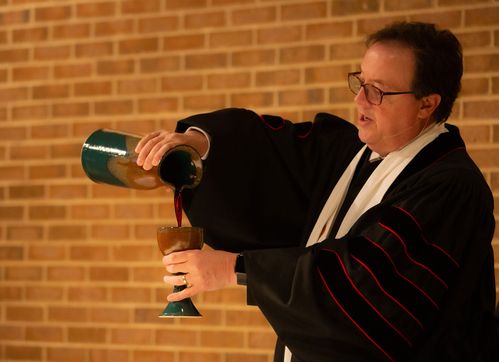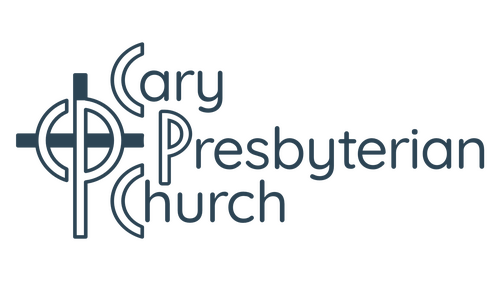"The Sacraments of Baptism and the Lord’s Supper are God’s acts of sealing the promises of faith within the community of faith as the congregation worships, and include the responses of the faithful to the Word proclaimed and enacted in the Sacraments."
— PC(USA) Book of Order
Churches of the Reformed tradition celebrate two Sacraments: Baptism and Communion (also known as the Lord’s Supper or Eucharist). We affirm these two Sacraments to be ordained by God and instituted by the Lord Jesus Christ.
In Baptism we are united to Christ as members of his body, the church; at Communion we join with the church in every time and place to give thanks for our salvation in Christ.
In Baptism we are washed and welcomed by the grace of God; at Communion we are nourished and strengthened by that same grace.
In Baptism we are united to Christ as members of his body, the church; at Communion we join with the church in every time and place to give thanks for our salvation in Christ.
In Baptism we are washed and welcomed by the grace of God; at Communion we are nourished and strengthened by that same grace.
Baptism
Baptism enacts and seals what the Word proclaims: God’s redeeming grace offered to all people. Baptism is God’s gift of grace and also God’s summons to respond to that grace. Baptism calls to repentance, to faithfulness, and to discipleship. Baptism gives the church its identity and commissions the church for ministry to the world.
Baptism is a corporate or communal event in the Reformed tradition—not a private occasion or family affair but one that is witnessed and celebrated by the whole church in the presence of God. In Baptism we are incorporated into the body of Christ, becoming members of Christ and of his church throughout the world. Therefore, the local congregation has a vital part to play in extending the love and welcome of Christ to the newly baptized. The Christian congregation continues to nurture those who are baptized throughout the lifelong journey of faith, always reminding them of God’s promises and holding them accountable to their own commitments to live as faithful disciples of Jesus Christ.
The Presbyterian Church (U.S.A.) recognizes all Baptisms administered by other Christian churches.
Baptism is a corporate or communal event in the Reformed tradition—not a private occasion or family affair but one that is witnessed and celebrated by the whole church in the presence of God. In Baptism we are incorporated into the body of Christ, becoming members of Christ and of his church throughout the world. Therefore, the local congregation has a vital part to play in extending the love and welcome of Christ to the newly baptized. The Christian congregation continues to nurture those who are baptized throughout the lifelong journey of faith, always reminding them of God’s promises and holding them accountable to their own commitments to live as faithful disciples of Jesus Christ.
The Presbyterian Church (U.S.A.) recognizes all Baptisms administered by other Christian churches.
Communion
All the baptized faithful or those who are being instructed in the ways of faith, are welcomed to the Table, and none shall be excluded because of race, sex, age, economic status, social class, ability level, difference of culture or language, or any barrier created by human injustice.
On most Communion Sundays, the elements of bread and juice are shared by intinction: participants come forward to the chancel, receiving a piece of bread and dipping it in the cup. Those who prefer are served in the pews. All bread is gluten-free.
On most Communion Sundays, the elements of bread and juice are shared by intinction: participants come forward to the chancel, receiving a piece of bread and dipping it in the cup. Those who prefer are served in the pews. All bread is gluten-free.

